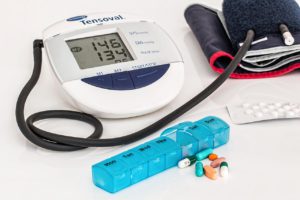In today’s evolving care landscape, patient education has never been more critical—it’s the foundation of informed, compassionate support. Education equips families seeking disability home care services to navigate complex needs with confidence. Likewise, those working with aged care equipment suppliers must understand how tools and training work together to create safe, effective environments for older adults.
Caring for others—whether a loved one or a client—is both a responsibility and a privilege. But the best care doesn’t start with action; it starts with understanding. Empowering carers through knowledge transforms daily routines into purposeful support, reduces risk, and builds trust in the care relationship. As our population ages and the demand for in-home support rises, the role of education in home-based care is growing in both relevance and urgency.
Why Knowledge Is the Core of Good Care
Providing physical assistance is only part of the care equation. True quality care includes emotional support, clear communication, and an understanding of how to meet a person’s unique needs. Education helps carers see the whole person, not just their condition or age.
When caregivers are equipped with accurate, up-to-date information, they’re able to make better decisions—from managing medication to preventing falls or addressing cognitive decline. This knowledge reduces uncertainty and improves outcomes, especially in settings where medical staff are not always present.
Bridging the Gap Between Hospitals and Homes
One of the key challenges in home care is ensuring continuity. Patients often leave hospitals or clinics with complex care instructions that must be followed at home. Education acts as a bridge between clinical settings and everyday environments. It allows carers—both professional and informal—to carry out tasks with competence and clarity.
This includes understanding treatment plans, dietary needs, hygiene routines, and how to respond to warning signs. It also involves navigating systems, from funding and assessments to referrals and support services. Without proper knowledge, even the most well-meaning caregiver may struggle.

Supporting the Supporters
Informal carers—spouses, children, and friends—form a crucial backbone of home-based care. However, many find themselves in the role unexpectedly, without training or preparation. Educational resources, workshops, and one-on-one coaching can make a tremendous difference in how supported they feel.
For professional carers, ongoing training keeps skills sharp and ensures they can meet evolving standards and client needs. Education isn’t a one-time event—it’s a continuous process that grows alongside the person receiving care.
By investing in the education of carers, we also invest in their wellbeing. Knowledge fosters confidence, reduces burnout, and gives carers tools to work smarter, not harder. Informed carers are not only more effective—they’re more resilient and fulfilled in their roles.
Tools That Support Learning
Learning in the care sector comes in many forms. Written materials, videos, online courses, mentoring programs, and community support groups all play a role. What’s most important is that education be accessible, practical, and adaptable to different learning styles and literacy levels.
The most effective learning tools are those that are grounded in real-life scenarios. Case studies, demonstrations, and hands-on practice allow carers to translate knowledge into action. When carers understand the why behind their tasks, they’re more likely to perform them correctly and confidently.
Technology’s Role in Home Care Education
Digital platforms are changing how carers access information. Apps, video libraries, and telehealth consultations now offer real-time support and step-by-step guidance. These tools extend the reach of education, making it easier to update knowledge and access help when it’s needed most.
For families managing care from a distance, online platforms allow them to stay involved, review plans, and communicate with care teams. This not only improves care coordination but reduces anxiety for those trying to manage responsibilities remotely.
Creating a Culture of Ongoing Learning
Incorporating education into the DNA of home care services starts with a mindset. Providers, coordinators, and families must see learning not as a checkbox, but as a continuous journey. Just as health needs evolve, so too should the skills and knowledge of those providing support.
Creating this culture means encouraging questions, sharing new research, and offering regular opportunities for training and reflection. It means celebrating learning milestones as part of the care journey—not as a side task but as an essential pillar.
Partnerships That Strengthen Knowledge
No one organisation can do it all. That’s why collaboration is key. Healthcare professionals, educators, policymakers, and suppliers all play a role in improving care through knowledge. When these stakeholders work together, they create better systems for training, clearer pathways for families, and stronger safety nets for everyone involved.
This includes integrating education into equipment delivery, offering free public seminars, and developing guidelines that reflect lived experiences. Partnerships ensure that knowledge reaches the people who need it—when they need it most.
Conclusion
Caregiving is one of the most human acts we can offer. But doing it well takes more than good intentions. It requires knowledge—the kind that turns tasks into meaning, worry into confidence, and effort into impact.
By prioritising education across every stage of the care journey, we unlock the full potential of home-based support. We prepare carers for the realities of their role and honour the dignity of those they serve. In a world where demand for care is growing, empowering care through knowledge isn’t just an option—it’s a necessity.


